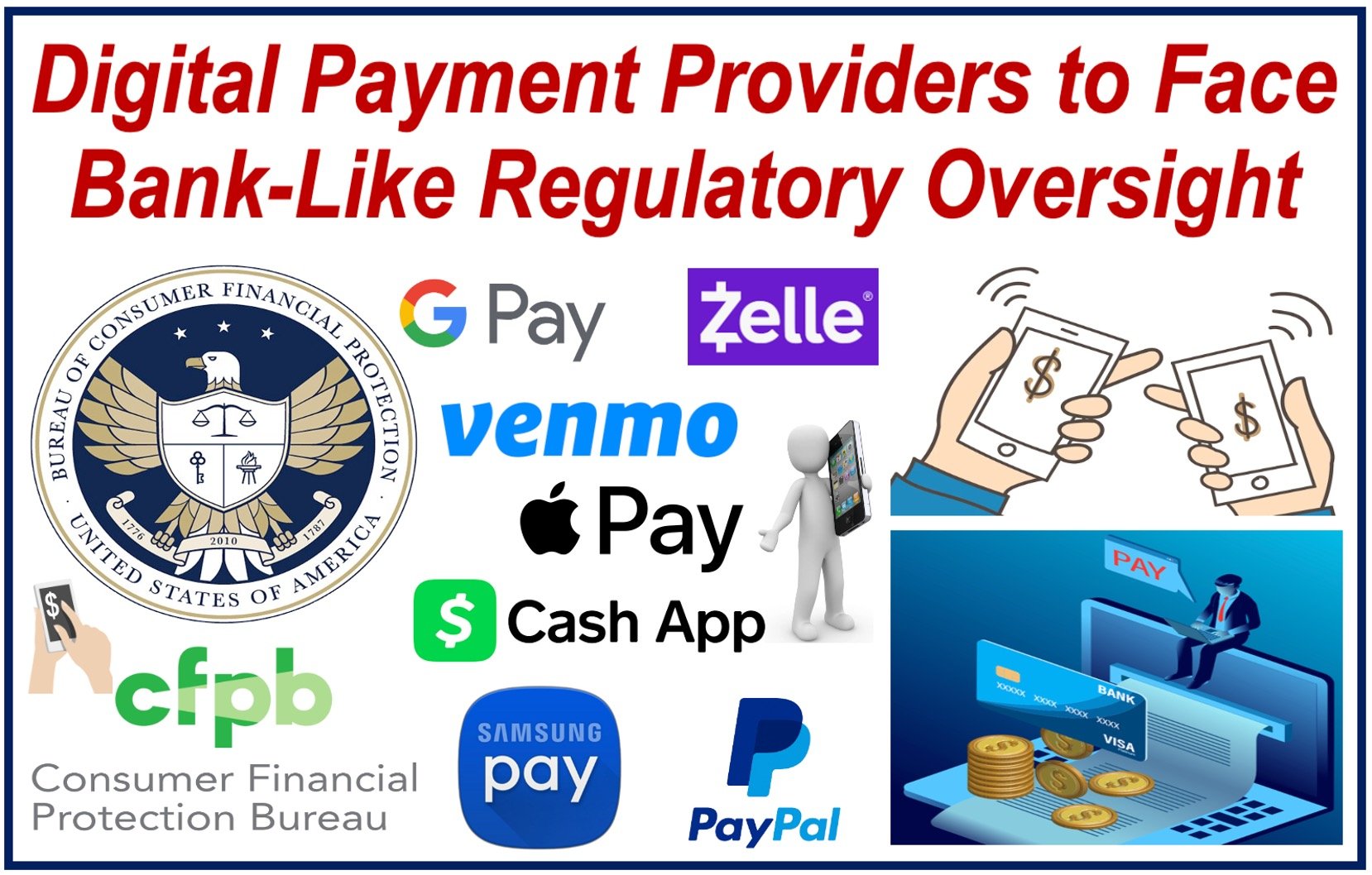In the US, the Consumer Financial Protection Bureau (CFPB) has finalized a rule that will bring major digital payment providers under similar regulatory oversight as traditional banks. In other words, they will now be regulated more like banks.
This move impacts popular services such as Apple Pay, PayPal, Venmo, and Cash App, which process over 13 billion transactions annually.
The Consumer Financial Protection Bureau (CFPB) is an independent agency of the U.S. government responsible for overseeing financial products and services offered to consumers.
Why the Change?
Digital payment apps were convenient tools when they initially came onto the market. However, they have now become essential financial platforms, and as such, the CFPB wants to ensure that they comply with federal laws regarding fraud protection, privacy, and consumer protection.
CFPB Director Rohit Chopra emphasized the need for updated oversight, stating,
“Digital payments have gone from novelty to necessity, and our oversight must reflect this reality. The rule will help to protect consumer privacy, guard against fraud, and prevent illegal account closures.”

What Does the Rule Cover?
-
Privacy Protection
Digital payment providers often collect significant amounts of user data. The CFPB will ensure these companies allow their users to opt out of certain data practices and prevent false claims about data security.
-
Fraud and Error Resolution
Digital payment providers will now have to address and resolve cases of fraud and transaction errors, rather than shifting the responsibilities to financial institutions such as credit unions or banks.
-
Debanking Safeguards
The rule addresses concerns about sudden account freezes or closures without notice, which can disrupt customers’ ability to access funds.
Who Is Affected?
The rule applies to nonbank firms handling over 50 million U.S. dollar transactions annually. This threshold narrows the scope to seven major providers, including:
- Apple Pay
- Google Pay
- Venmo
- PayPal
- Cash App
- Samsung Pay
- Zelle
These firms account for 98% of the digital payments market activity overseen by the CFPB.
Companies managing fewer transactions or operating in niche markets are exempt.
How Will It Work?
According to a CFPB press release:
“Today’s rule gives the CFPB the authority to conduct proactive examinations to ensure companies are complying with the law in these and other areas.”
“Supervision can prevent harm by detecting problems early. Supervision also is an important tool for the CFPB to assess risks that can emerge rapidly in this market, including from outages and other issues that could lead to millions of consumers losing access to their funds.”
The examinations will include reviewing compliance policies, inspecting operations, and interviewing employees to ensure adherence to federal consumer financial laws. These examinations are similar to those conducted for banks.
Why It Matters to Consumers
This regulation helps consumers who use digital payment apps by enforcing standards that minimize risks like data breaches, fraud, and sudden loss of access to funds.
For user who are increasingly reliant on these apps for everyday transactions, such as younger adults and low-income users, this oversight provides an added layer of security.
When Will This Take Effect?
The rule will be implemented 30 days after its publication in the Federal Register.
While some industry groups have criticized the regulation, citing overreach, that is, they say that it goes to far, many consumer advocates and traditional banks support the move, viewing it as a step toward fair competition and enhanced consumer protection.
Conclusion
The CFPB’s decision reflects the rapidly growing importance of digital payment apps in the financial ecosystem.
As these services become central to modern commerce, holding them to the same standards as banks is a logical step to ensure consumer trust and security.
